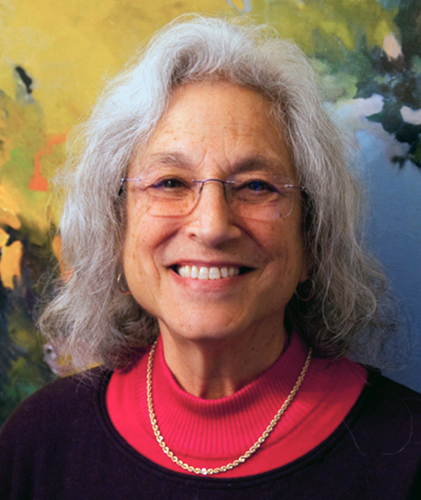
Cohen, Avis H.
Maryland Robotics Center
Avis Cohen received her Ph.D. from Cornell University in 1977 after bearing two sons. She held post-doctoral positions at the Karolinska Institute in Sweden, and Washington University in St. Louis before returning to Cornell University where she had her own laboratory studying the organization of the lamprey spinal cord. At Cornell she began a collaboration with mathematicians which continues today. It was in this collaboration that she and her colleagues developed groundbreaking theoretical treatments of systems of coupled non-linear oscillators. At Cornell she also began exploring the process of spinal cord regeneration in lampreys.
Dr. Cohen joined the University of Maryland, Department of Biology (then Zoology) in 1990 and retired with emerita status in 2014. Over the next eight years she established and directed the Program in Neuroscience and Cognitive Science, an interdisciplinary graduate program that combines training in cognitive and computational methods with traditional neuroscience, making this one of the few such programs in the country. During these years, Dr. Cohen also began working with the Telluride Workshop in Neuromorphic Engineering. She was one of the directors and co-PI on the NSF grant funding this innovative program.
Dr. Cohen worked in collaboration with Dr. Etienne-Cummings, Johns Hopkins University, and Dr. Anthony Lewis, president of Iguana Robotics, on a robot controller for legged robots that could parlay into a spinal cord prosthetic device for spinal cord injury patients. She now continues her experimental studies of spinal control locomotion in lampreys with spinal cord injuries by working with a physicist and bioengineers to examine the structure of the injury site and the role the tissues may play in recovery or obstruction of function.
Honors and Awards
Fellow, American Association for the Advancement of Science, 2008
University of Maryland Distinguished Scholar-Teacher Award, 2011
My research focuses on systems: neural and genomic. I typically use computational and integrational methods to understand the relationship between the parts of the system. My neural systems research is a collaborative effort to put the lamprey back together again - that is, to use mathematical, physiological, behavioral, and biomechanical studies to understand how neural output is integrated with the properties and forces of the muscle, body and water to generate realistic swimming movement. In genomics, my focus is currently immune proteins of the sea urchin.
UMD Researchers to Have a Strong Showing at the 2022 European Conference on Computer Vision (ECCV)
The 2022 International Conference on computer vision will be held in person and online from October 23 to October 27, in Tel Aviv, Israel.UMD names Derek Paley as a 2020–2021 Distinguished Scholar-Teacher
The program recognizes faculty members who have demonstrated outstanding scholarly achievement along with equally outstanding accomplishments as teachers.John Baras elected AAAS Fellow
Baras recognized for accomplishments in multiple fields that mark his career.Avis Cohen to give Distinguished Scholar-Teacher lecture
Event is Nov. 30, 4 pm, 1115 CSIC.Telluride newspaper writes about Neuromorphic Cognition Engineering Workshop
ISR faculty, staff, students key to the workshop's planning and organization.Avis Cohen is co-PI on NSF neuromechanics and dynamics of locomotion grant
Research will coordinate neural and mechanical studies on lamprey locomotion.Cohen's computer modeling of swimming fish could lead to new robots and prosthetics
Article to be published in Proceedings of the National Academy of Sciences.CNN airs special program on Cohen, Etienne-Cummings research
Work on biologically inspired computer chip appeared on Earth's Frontiers.- Fellow, 2008